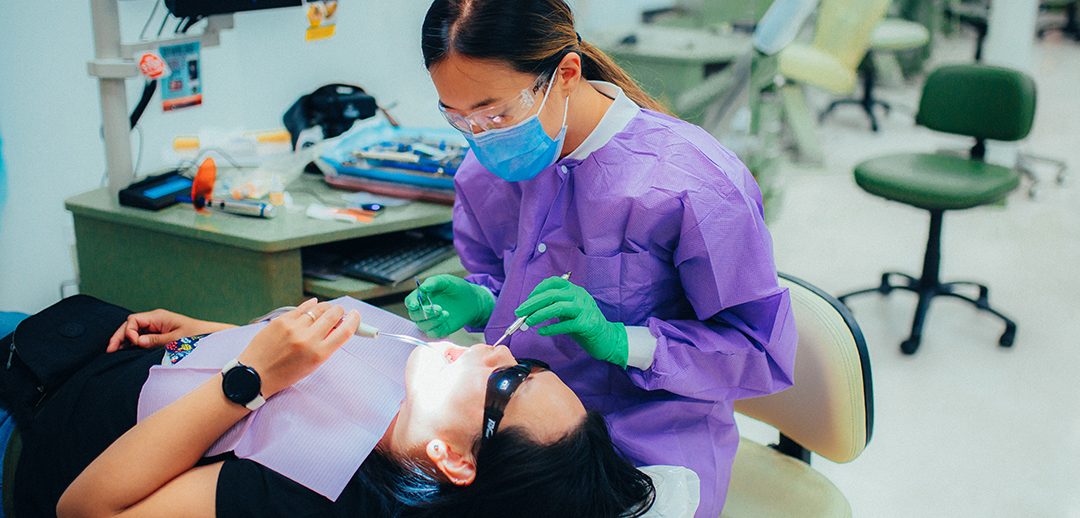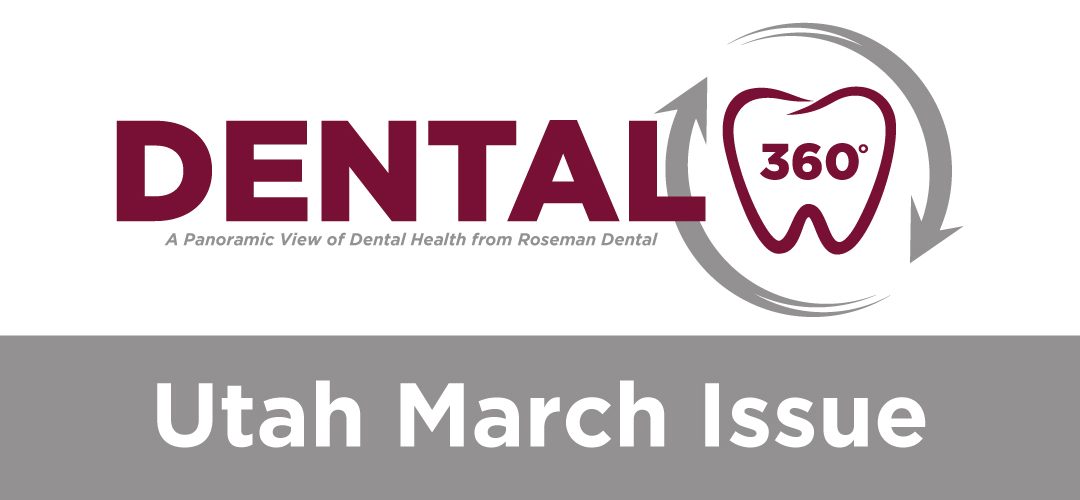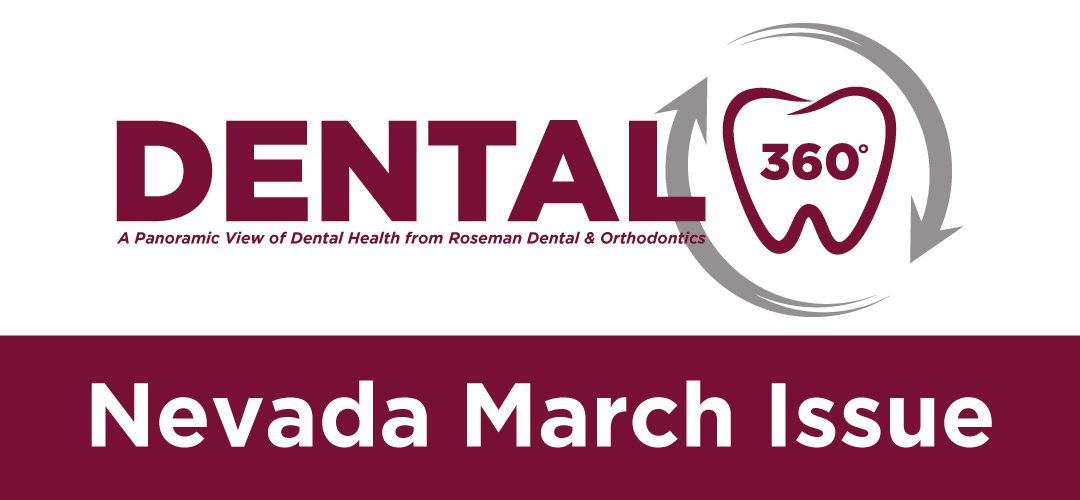
by Roseman Dental | Apr 11, 2022 | Dental Clinic Blog, Dental School, Roseman Dental - NV, Roseman Dental - UT
Perhaps you were the kid that wanted to see the rat skull in your friend’s backyard because you wanted to look at its teeth. Maybe you are the type of person now that analyzes dental problems when someone you meet first smiles. Some people are just meant to be dentists!
There are many different areas of specialization to explore beyond general dentistry. No matter what your specific fascinations, there’s a particular path of education that can be tailored to fit. The American Dental Association recognizes twelve unique specialties, each of which requires an advanced expertise:
Dental Anesthesiology
Professionals in this field manage patients’ pain, anxiety, and overall health through dental diagnoses and procedures.
Dental Public Health
Dentists in this field work to prevent dental diseases within a community and control any diseases that arise, as well as promote public awareness of the need for oral health care.
Endodontics
This specialty focuses on the condition of the human dental pulp (the inside part of the tooth) and tissues. Dentists study the biology of the pulp and how to prevent, diagnose, and treat diseases there.
Oral and Maxillofacial Pathology
These dentists research and treat conditions, diseases, defects and injuries causing and/or contributing to functional and aesthetic problems in the mouth, teeth, jaws and face.
Oral and Maxillofacial Radiology
These specialists interpret radiology scans to diagnose diseases or show the general condition of the mouth, teeth, jaws and face.
Oral and Maxillofacial Surgery
Dentists with this advanced degree have specific expertise in corrective surgery for problems with the tissues in the oral and maxillofacial regions.
Oral Medicine
Specialists in this area focus on oral healthcare for medically complex patients, along with diagnosing and managing medically related conditions affecting the mouth, teeth, jaws and face.
Orofacial Pain
Orofacial pain specialists diagnose, manage and treat pain disorders affecting the jaw, mouth, face, head and neck.
Orthodontics and Dentofacial Orthopedics
These specialists correct the improper placement of the teeth with braces and other therapies.
Pediatric Dentistry
Dentists in this specialty work with infants and children to provide preventative and therapeutic dental services.
Periodontics
This specialty includes the prevention, diagnosis and treatment of problems with the tissue surrounding the teeth.
Prosthodontics
Prosthodontists provide solutions and comfort for people suffering from deficient or missing teeth.
The first step for any of these dental specialties is to get a degree in general dentistry, or a Doctor of Dental Medicine (DMD) degree. If any of these specialized fields seem particularly interesting, then you might want to consider continuing your education with advanced degrees or getting the proper certifications to do what you love in the field of oral health.
Curious about becoming a dentist? Take a look at Roseman University’s College of Dental Medicine.

by Roseman Dental | Mar 9, 2022 | Dental 360, Dental Clinic Blog, Roseman Dental - UT
Spring is indeed in the air! In this March issue of Dental 360°, you’ll learn about the importance of dental health for expecting moms, refresh your daily dental hygiene, and get some tips about how to improve your nutrition. And don’t miss this! Our dental voucher program has been extended through March 31!
Roseman Dental’s Dental 360° is a monthly e-newsletter. Each month you’ll receive a panoramic view of dental health. Dental health is key to your overall health and here at Roseman Dental, we are dedicated to improving not only your mouth, but your whole self. At our clinic we have an excellent team of licensed dentists, dental residents and students, and dental assistants and hygienists all focused on you and your family’s oral health. We offer comprehensive care, are a one-stop shop for all your dental needs and offer dental care at a cost typically lower than what you would find at a traditional dental office. Roseman Dental has been serving its community since 2011 and we look forward to continuing to serve you and your family.
We hope you find Dental 360° helpful and informative. We look forward to connecting with you each month.
Dental 360° March Articles
Preventive Dental Care: Vital to Your Oral Health
Why Periodontal Health Is Important When Expecting
Ways to Boost Your Nutrition
New Year, New Deal – Dental Care Voucher Offer

by Roseman Dental | Mar 9, 2022 | Dental 360, Dental Clinic Blog, Roseman Dental - NV
Spring is indeed in the air! In this March issue of Dental 360°, you’ll learn about the importance of dental health for expecting moms, refresh your daily dental hygiene, and get some tips about how to improve your nutrition.
Roseman Dental & Orthodontics’ Dental 360° is a monthly e-newsletter. Each month you’ll receive a panoramic view of dental health. Dental health is key to your overall health and here at Roseman Dental & Orthodontics, we are dedicated to improving not only your mouth, but your whole self. At our clinic we have an excellent team of licensed dentists, orthodontists, orthodontic residents – 30 to be exact, and dental residents all focused on you and your family’s oral health. Roseman Dental & Orthodontics has been serving its community since 2009 and is a comprehensive, one-stop shop for all your dental needs including dental, orthodontic and craniofacial cleft lip & palate treatment.
We hope you find Dental 360° helpful and informative. We look forward to connecting with you each month.
Dental 360° March Articles
Preventive Dental Care: Vital to Your Oral Health
Why Periodontal Health Is Important When Expecting
Ways to Boost Your Nutrition
Subscribe to e-newsletter

Click Here to Leave a Review

by Roseman Dental | Mar 7, 2022 | Dental Clinic Blog, Oral Health, Roseman Dental - NV, Roseman Dental - UT
Keeping up with your oral health is a daily task. It may be tempting not to take the time for regular dental maintenance, whether at home or at the dentist’s office. However, like so much in life, slacking on dental hygiene doesn’t pay.
Routine Home Cleanings
Brush or floss after every meal, or at least twice a day, to ensure the health of your teeth and gums, you should brush and floss after each meal. Flossing removes bits of food that toothbrushes may not be able to reach. If these pieces of food aren’t removed, they provide nourishment for bacteria, which excrete acid that destroys tooth enamel and causes cavities.
Flossing and brushing also gets rid of plaque, a sticky substance that can cause gum disease, tooth discoloration, and even tooth decay. Plaque that isn’t removed can harden into tartar, which can then lead to gingivitis and periodontal disease. Fortunately, most of these problems can be prevented with a simple routine of brushing and flossing regularly.
Regular Dental Checkups
Almost half of Americans put off regular dental care or previously planned treatment during the COVID-19 pandemic. As we enter a new stage of the pandemic, made more manageable with vaccines and boosters readily available, it’s time to re-book those postponed check-ups and procedures.
In addition to good dental hygiene at home, make sure to visit the dentist twice a year, or about every six months. The dentist will check for cavities and treat them before they become serious. He or she will also scrape away tartar and plaque buildup, and can treat gingivitis before it becomes full-blown gum disease. Visiting the dentist regularly is crucial to maintaining a beautiful smile for years to come.
Reduced Costs
Aside from the medical benefits of regular dental care, there are financial reasons to keep at it as well. Many insurance plans will pay for most or all of the price of regular dental appointments, but may cover less of the cost for more expensive procedures. For instance, while most patients with insurance pay around 20 percent of their exam fee and the price of getting a cavity filled, they could pay 50 percent of the cost of root canals, crowns or bridges. These procedures can sometimes be avoided with preventive care that finds the problem early and provides treatment. By structuring their payment schedules this way, insurance companies financially incentivize their patients to prevent dental problems rather than repair them after they become more serious. Take advantage of this structure by getting regular cleanings and check-ups.
As the saying goes, “An ounce of prevention is worth a pound of cure.” Apply this maxim to your oral health, and save yourself pain and money. If it’s been awhile, make an appointment with Roseman Dental and set yourself up for better dental health.





